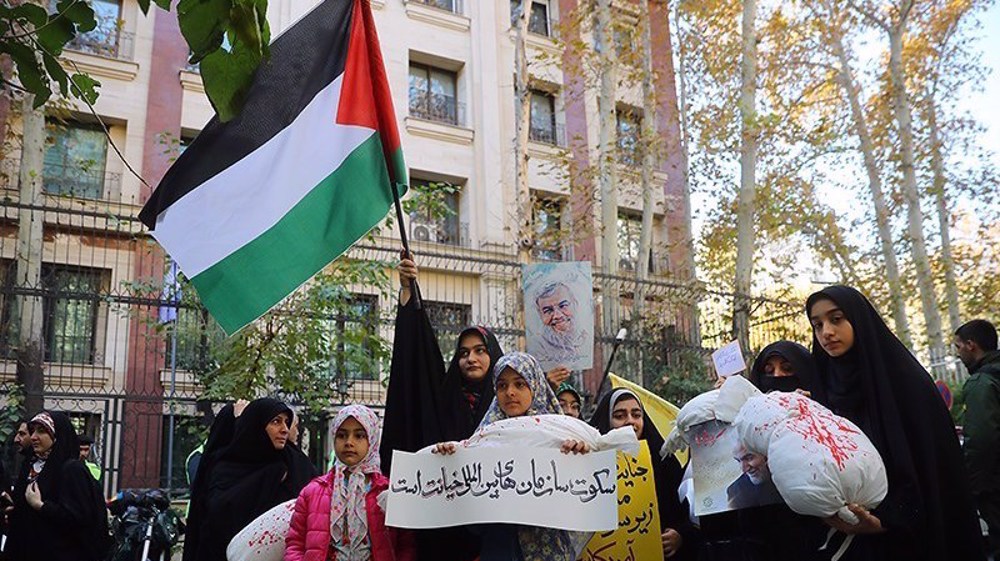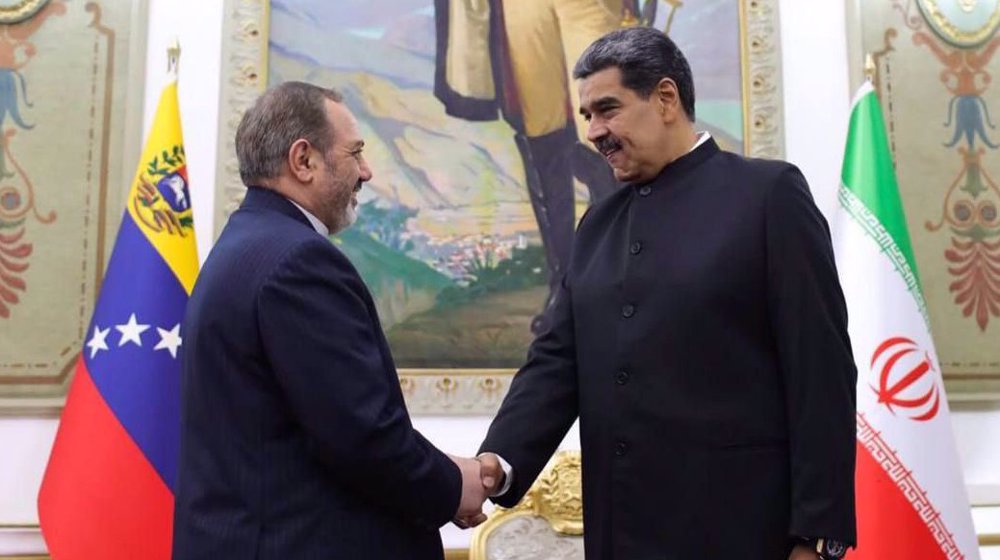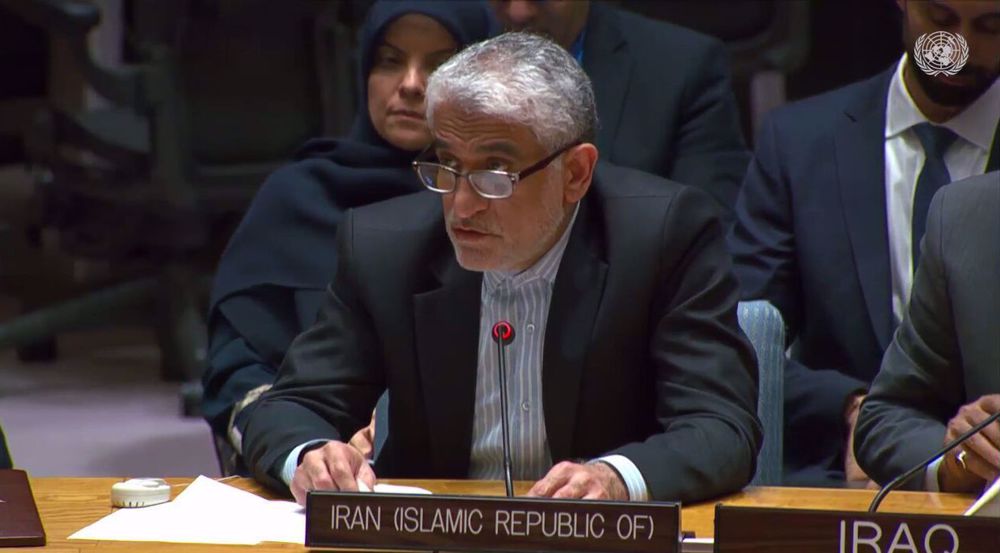Iran urges 'serious action' by Muslims against US relocation of embassy to Jerusalem al-Quds
Iran says the United States will pay the price for its plan to relocate its embassy from Tel Aviv to Jerusalem al-Quds.
President Donald Trump formally recognized Jerusalem al-Quds as Israel's "capital" on December 6 and announced plans to move the US embassy to the occupied holy city.
"This is one of the United States' very wrong policies, for which it will pay the price in the future," Foreign Ministry spokesman Bahram Qassemi told reporters during a weekly news briefing in Tehran on Monday.
"With the mindlessness which we see in American decisions, there is need for serious action in the Islamic world," the official added.
Qassemi also hoped that calm would return to the Syrian capital and its Eastern Ghouta suburbs which are the scene of fierce government clashes with foreign-backed terrorists.
Militants have been using the countryside as a base for mortar attacks on the capital. The Syrian military is currently in the midst of an operation to drive the terrorists out of the area.
On Saturday, the United Nations Security Council unanimously voted in favor of a resolution demanding a 30-day truce in Syria "without delay" to allow aid access and medical evacuations.
Qassemi said the Islamic Republic wants a ceasefire across Syria so that humanitarian aid could reach civilians.
The spokesman also commented on Turkey's ongoing military operation in Syria's Afrin region, saying Iranian, Turkish, and Russian foreign ministers and presidents would be meeting in May to discuss the situation in the Arab country.
"These negotiations are instrumental in resolving differences, and will contribute to efforts aimed at restoring calm and fighting terrorism in Syria," he said.
Tehran and Ankara, Qassemi said, have shared common views on Syria at times and differed at others. "What is important is that we are cooperating" towards a resolution of the conflict in the Arab country, he added.
UK resolution against Iran at UN
Qassemi said a British resolution against Iran over the Yemen war, which is to be into a vote at the United Nations Security Council on Monday, would be helping "invaders and aggravate the invasion."
"We do not send arms to Yemen. Such blame games are being waged by those who are fanning [the flames of] war and bloodshed in Yemen," he said.
The spokesman further said, "What is happening in Yemen is the result of arms exports by the United Kingdom and the United States to Saudi Arabia."
Iran, he said, was observing "dishonest behavior" on the part of the British government, which is trying to use the international mechanism to support the invader despite its claims of seeking to end the Saudi war.
London and Washington have been arming Saudi Arabia since 2015 when the kingdom and its allies invaded Yemen to restore its Riyadh-allied government. Around 13,600 people have died since the invasion began.
VIDEO | New Delhi chokes under toxic smog as air quality remains at hazardous levels
VIDEO | Press TV's news headlines
VIDEO | ICC's arrest warrant for Netanyahu to worry Western politicians: Former British diplomat
Iranians protest against Israel after Netanyahu ICC warrant
Germany undecided on complying with ICC arrest warrants for Israeli war criminals
VIDEO | Former FBI agent criticizes US Congress for 'outright corruption'
IRGC chief urges Muslim countries to cut aid routes to Israel
'New chapter in cooperation': Iran, Venezuela sign new MoUs













 This makes it easy to access the Press TV website
This makes it easy to access the Press TV website